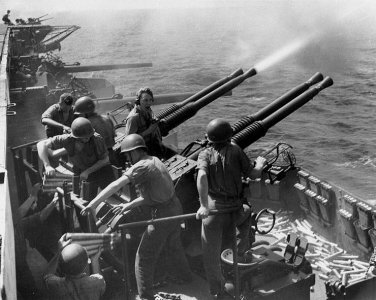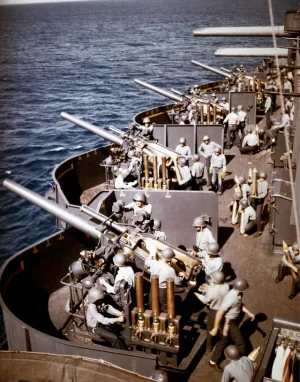Evie
Pronounced like Eevee
Which resulted in airplanes pulling further away from the front, ie, being scared off. You shoot down a few, the rest go away.
But that's only for the area within a few hundred kilometers of the front, and no amount of Patriots and S-400 has succeeded at stopping Mig-31s and Blackjacks from standing outside Patriot range all night lobbing Kinzhals and similar missiles in the general direction of Ukrainian power plants, factories and schoolyards full of children. Nor has it stopped Ukraine, once they had permission to do so, from sitting outside S-400 range lobbing Storm Shadows in the general direction of Russian military bases and factories - because both missiles out-range the S-400 and the Patriot, and when you're firing at a generally unmoving target, or a big and slow moving target (like a ship), it's a lot easier to hit them from very very far away than if you're firing at something small and fast. The same goes at sea, where anti-ship missiles generally travel just a little further than anti-air counterparts of the same generation, because the bigger and slower a target, the easier it is to hit from afar.
The Ukraine war hasn't really given us any good recent example of sea vs air, because, again, the Ukrainians realized they didn't actually *need* planes to hit Russian ship that wandered within missile range of the Ukrainian coast (see again: Moskva), and the Russians...well, mostly realized that they didn't actually have any Ukrainian ships to fire missiles at. The one example of actual shooting sea war in the missile age is the Falklands, and even that was hampered because Argentina started the war with only a whole *five* missiles in their possession ; still those five Exocet brought holy terror upon the Royal Navy and the UK spent the next several years trying their level best to keep Argentina from purchasing more.
As I said ; as far as realism goes, the recent development for planes vs ships hasn't been for ships to get better at fighting off planes ; it,s been for increasingly long ranged land-launched cruise missiles to render the planes increasinly unnecessary in getting the missile to its target.
But that's only for the area within a few hundred kilometers of the front, and no amount of Patriots and S-400 has succeeded at stopping Mig-31s and Blackjacks from standing outside Patriot range all night lobbing Kinzhals and similar missiles in the general direction of Ukrainian power plants, factories and schoolyards full of children. Nor has it stopped Ukraine, once they had permission to do so, from sitting outside S-400 range lobbing Storm Shadows in the general direction of Russian military bases and factories - because both missiles out-range the S-400 and the Patriot, and when you're firing at a generally unmoving target, or a big and slow moving target (like a ship), it's a lot easier to hit them from very very far away than if you're firing at something small and fast. The same goes at sea, where anti-ship missiles generally travel just a little further than anti-air counterparts of the same generation, because the bigger and slower a target, the easier it is to hit from afar.
The Ukraine war hasn't really given us any good recent example of sea vs air, because, again, the Ukrainians realized they didn't actually *need* planes to hit Russian ship that wandered within missile range of the Ukrainian coast (see again: Moskva), and the Russians...well, mostly realized that they didn't actually have any Ukrainian ships to fire missiles at. The one example of actual shooting sea war in the missile age is the Falklands, and even that was hampered because Argentina started the war with only a whole *five* missiles in their possession ; still those five Exocet brought holy terror upon the Royal Navy and the UK spent the next several years trying their level best to keep Argentina from purchasing more.
As I said ; as far as realism goes, the recent development for planes vs ships hasn't been for ships to get better at fighting off planes ; it,s been for increasingly long ranged land-launched cruise missiles to render the planes increasinly unnecessary in getting the missile to its target.
Last edited:



